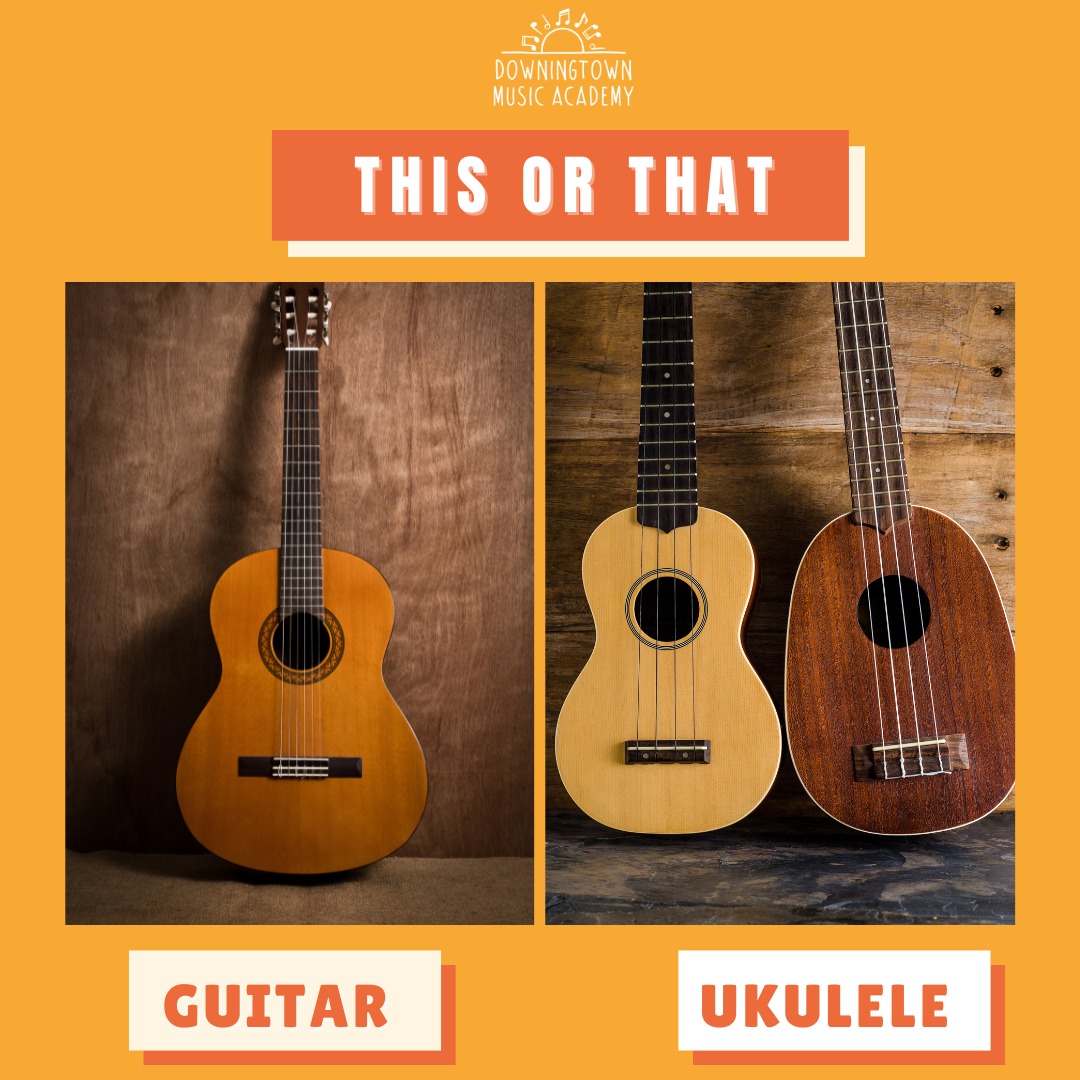- Why January Is the Perfect Time to Start Music Lessons in Downingtown PA
- How to Set Up the Perfect At-Home Studio for Virtual Music Lessons
- Online vs. In‑Person Music Lessons in Downingtown: Which Works Best for You?
- Faith and Music in Lessons at Downingtown Music Academy
- Why It’s Never Too Late to Return to Music Lessons: Stories, Tips, and Inspiration
- How Themed Practice Incentives Make Music Lessons More Fun and Effective
- Why Music is So Important for Neurodiverse Children
Should I Learn the Ukulele?

Perhaps you've been wanting to take lessons but wondering "Should I learn the ukulele?" Let's go over some of the pros and cons of taking lessons on this charming little instrument so that you can make the best decision for your wallet, your schedule and your personality: Pros:
- good for self accompaniment
- very portable and doesn't take up much space
- inexpensive
Cons:
- reading the music may not be very intuitive
- may be slightly more difficult for fine motor skills for young children
- nails must be kept short
A Great Instrument for self accompaniment and beginners!
Beginning students will enjoy the ukulele because it's quick to master a variety of chords. Singers will also enjoy it because it is portable and easy to play while singing. Ukulele also uses tablature which is a relatively direct way to read music for string instruments. If you are in a pinch with trying to learn a song quickly, tablature can be a great time saver.
Reading and Motor Challenges
Sometimes students can find reading tricky when reading the staff for ukulele because it isn't super intuitive. Staff reading is more universal than tablature in that all instruments can use it. But the strings on the ukulele are not in any alphabetical or pitch related order. So understanding where notes are when going between strings is shear memorization. Students cannot as easily use an existing note to help them find other notes. On the other hand, ukulele only has four strings so there isn't as much to memorize with hand movements. Although not as difficult as guitar to maneuver the strings, it can still be a challenge for some younger kids (4-5) to maintain the curved hand position and pressure required to play.
What's the Cost?
A Ukulele is very inexpensive overall and requires little maintenance other than the occasional string replacement. You will have to learn how to tune it yourself, which can be done using a digital tuner, app or your ear.
Before You Play, Put the Claws Away
Finally, if you love long manicured nails, the ukulele (and string instruments) may not be for you. You will need to keep your nails short to play with this instrument since it requires you pressing down on the pads of your fingertips. Long nails will prevent you from doing this. So, have fun with nail colors, but lose the acrylics or fashionable coffin nails. For more pros and cons about taking lessons for different instruments, check out this video. To learn more about ukulele lessons with DMA, check out our ukulele lessons page.